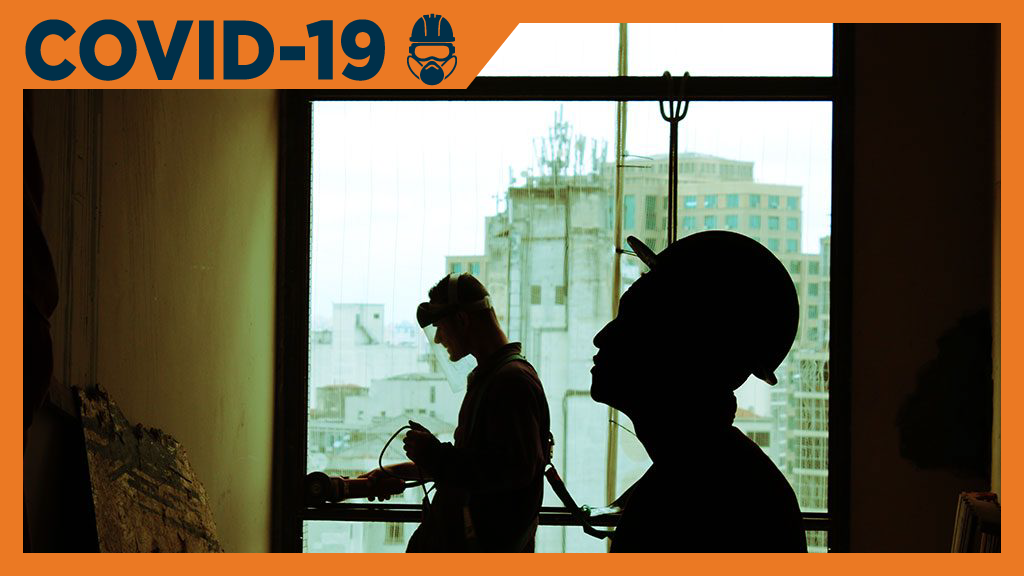Construction productivity-loss specialists are earning their paycheques these days as owners and contractors wrangle trying to estimate the impact of COVID-19 on project schedules and decide on compensation for project delays.
Maged Abdelsayed, a civil engineer and partner at Deloitte’s Infrastructure and Capital Projects practice based in Montreal with expertise in project delays, labour-productivity losses and the impact of changes on construction work, said in a recent interview the multiple effects of the pandemic on labour productivity are still being calculated but it’s certain they are huge.
“We’re all trying to figure out what is going on,” he said of his fellow cost specialists. “Everyone is trying their best to dissect and figure out what the true impact is. It is quite the challenge.”
During a recent presentation Abdelsayed gave on Different Methods for Calculating Delay and Impact Losses at a June 25 Osgoode Professional Development day, he outlined over 25 direct project costs and examples of time wastage related to COVID-19, generally all affecting the workforce. That did not include other project disruptions such as supply-chain failures and government shutdowns.
It all adds up to a dramatic impact on project profitability, Abdelsayed said.
He related an anecdote from a recent conversation with a client, a structural steel contractor who does fabrication work offsite. They discussed some of the frustrating reasons for work slowdowns, such as workers refusing to use a port-a-john unless it was disinfected three times a day. It adds up to the full workforce on a site only being available 46 per cent of the day.
Abdelsayed calculated that the labour-cost impact of COVID-19 on the prefab work was 12 to 15 per cent and on the jobsite it was around 28 per cent.
“Twenty-eight per cent, that is almost one-third of the cost of labour that is being lost. So it is quite important,” he said. “When you start to add all the other stuff, we are talking big numbers.”
The mark-up to ensure profitability can vary depending on the marketplace and the kind of industry, Abdelsayed said, so the mark-up can be between five to 20 per cent.
“If you are having 30-per-cent impact and cost overruns, you are beyond profits, you are into big losses.”
Some impacts of COVID-19 are not readily quantifiable.
Abdelsayed’s presentation talked about crew size inefficiency, loss of a learning curve, poor morale and attitude, and reassignment of workers from their areas of expertise to such duties as checking co-workers’ temperatures onsite.
Labour ministries have stepped up site inspections but even that can have unexpected negative impacts.
Abdelsayed said it used to be when an inspector showed up, the workers all went about their business, but now they all stop and stand back to let the inspectors do their jobs. That is more time lost.
The disruption in the scheduling and costing of projects caused by COVID-19 has numerous other manifestations.
Another example cited by Abdelsayed is delay-loss arbitration hearings. He often gives advice during arbitration and he and his colleagues rely on extensive scholarly research going back as far as 1947, when the U.S. Department of Labor studied the effects of overtime on workplace productivity.
But COVID changes everything, Abdelsayed said: “It’s a new ballgame.”
“There is nothing out there yet (documenting the impacts of COVID) other than those conferences we are giving, that support the fact that there are impacts due to COVID and it should be determined and calculated separately from any other impact.”
Compounding the uncertain terrain in delay-dispute resolution, Abdelsayed said, is that some owners are suspicious that contractors are attempting to combine other impacts with COVID-related impacts.
“They are trying to lump everything together under COVID and say, ‘Hey, pay me, and they take them to the cleaners.’ ”
The industry response to this should be that all parties should improve their documentation and especially the quality of their schedules.
“That is why you need good information,” he said. “If you don’t have proper information and proper demonstration, and get the help that you need to present that information, you may hit a roadblock.”
Other advice Abdelsayed has for parties in the sector to minimize the disruption of delay-loss disputes includes increasing collaboration between workers and contractors to ensure there are not misunderstandings in workplaces, and supporting prefabrication as a way to get work done in a more controlled setting.
“I think it is unavoidable that costs are going to go up, at least until a vaccine is found and things go back to quasi normal,” Abdelsayed said.
Follow the author on Twitter @DonWall_DCN.











Recent Comments
comments for this post are closed